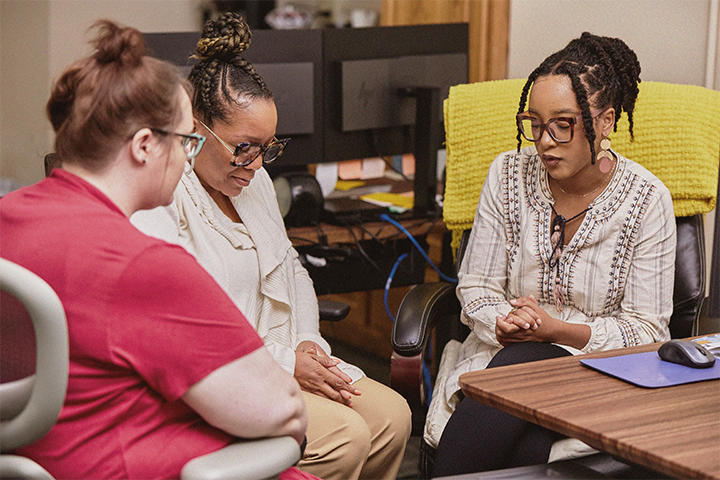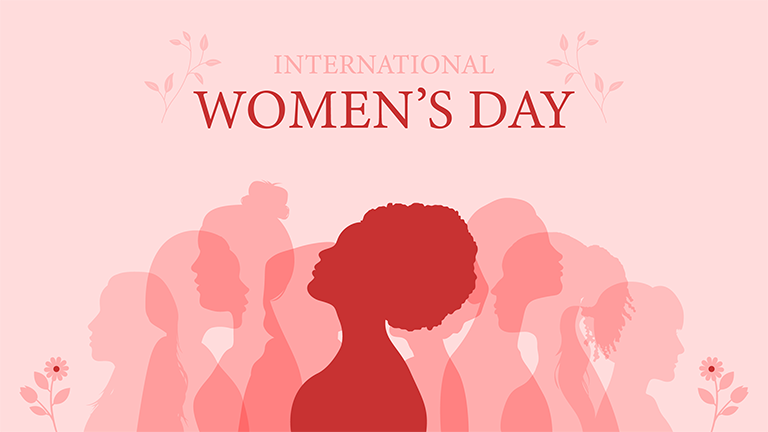“Why aren’t you listening to me?!”
“That’s not what I said!”
“How do you think I feel?”
We’ve all been there—whether it be a conversation with a child, spouse, coworker, or friend. Interpersonal relationships (interactions between people) require equal emphasis on both speaking and listening. However, when we try to speak (or listen), we often focus on the content of the message and forget about the recipient of the message: the person standing in front of us.
Shifting our focus changes both our relationship with others and our broader understanding of biblical community.
Why is communication important?
We tend to think of communication as a two-way street—one person talks (the messenger) while the other person listens (the receiver). There might be a bit of interference (noise) as the conversation (message) is delivered, but the information largely “gets across.” However, if you’ve ever been in any kind of relationship before, you know this two-way model isn’t at all accurate. For example:
- While your coworker might be hearing parts of what you’re saying about the project, they might also be thinking about that tasty tuna salad sandwich they had for lunch.
- Although you’re willing to let your spouse decompress when they arrive home from a long day at work, you’re distracted and overstimulated by the toddler who just made a mess next to your (now untidy) dinner table.
At its core, communication is about connection with community. That’s why effective communication skills are crucial. Every person is created in the image of God [Genesis 1:27] and thereby deserving of our respect.
Learning and implementing communicative models and behaviors sets us up for success in biblical community and ultimately, in our relationship with God.
Effective communication techniques and tips
Without raw conversations, joyful inside jokes, and real heart-to-heart moments, our interactions and healthy dynamics rapidly deteriorate.
It’s tempting to give up on humanity, especially if we’ve been hurt in the past. However, we’re meant to draw strength from our biblical community as we live life together and encourage each other [Hebrews 10:25].
How to be a better communicator in a relationship
Wouldn’t it be nice to step into a conversation and know exactly what to say? While there isn’t one “quick fix”, there are techniques that can help you build closer, stronger connections and have more effective communication with those you care about. Tackle your next conversation by trying out these tips:
Do a quick perception check: During a conversation, repeat back what you’re hearing from the other person. Whether it’s a feeling, thought, or statement, a little bit of clarification goes a long way. That could be something as simple as, “It sounds like you’re feeling XYZ. Is that accurate?” “So, when I said that, you thought XYZ. Is that correct?”
Be real with your inner circle: Social Penetration Theory states that our relationships are like the layers of an onion. The more disclosure (information) we share with each other, the closer our connection becomes. That level of “information sharing” must go both ways, and not everyone will be (or should be) in your “inner circle.” However, it’s important to have the real, raw, conversation with those trusted people. God puts friends and family (and friends who become family) in our lives to cultivate and serve each other’s hearts.
Practice prayer and encouragement: Prayer is an effective form of communication that we’re privileged to have with Christ. When we pray, we can be our most authentic selves, bringing our praises, petitions, and daily life updates to Him. He cares about it all! As we receive encouragement from Him, we can offer that same encouragement to others.
Stretch your muscles with conversation starters: If you want to have more honest heart-to-hearts or form a new friendship, try out some conversation cards! Bringing easy, open-ended prompts can help take the pressure off both parties and add a bit of fun.




